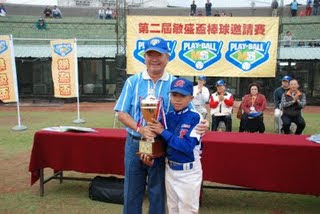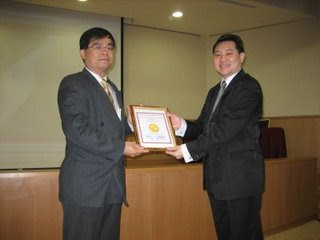
Driven by the high cost of healthcare in the U.S, a patient recently travelled to Taiwan’s Min-Sheng Hospital for total knee replacement surgery, and left enthusiastic about the care and service he received.
Ken, who owns and operates a small landscaping business in Clearwater Florida, had been suffering from bad knees for nearly nine years. When the pain became such that it impaired his ability to work and earn a living, he couldn’t turn away from the only option left to him: undergo surgery and replace his ailing knees with artificial ones.
Though common and readily available in America, knee replacement surgery is also costly. In Ken’s case, a bilateral knee replacement, the cost can easily amount to over $ 70.000 (NT +/- 2.500.000). Unfortunately, like almost 50 million Americans, Ken doesn’t have medical insurance, and would be left to pay the bill by himself. As such, he belongs to that rapidly expanding category of Americans who are “too rich” to qualify for Medicare or Medicaid, but whose incomes aren’t sufficient to pay for expensive private medical insurance.
Desperately needing a treatment that he couldn’t afford, Ken decided to search for a solution outside of the United States. Having heard of Medical Travel, where people travel abroad in search of treatments that they can’t find or pay for at home, Ken used the Internet to find viable options for his case. He was soon a little overwhelmed by the number of hospitals and medical travel facilitators that offer their services on-line. Therefore, he decided to focus only on hospitals meeting international safety and quality standards, namely those that are JCI accredited.
Ken sent queries to hospitals in nearly half a dozen countries ( Costa Rica, Columbia, Spain, Singapore) including Min-Sheng Hospital in Taoyuan, Taiwan. The International Healthcare department (IHC) at Min-Sheng, that was specifically created to deal with cases like these, handled his request from start to finish.
Ken was extremely impressed by the professionalism demonstrated by the staff at Min-Sheng, and grateful for the time spent on his case. So when the time came to decide on a destination for his knee replacements, he didn’t hesitate, and chose Min-Sheng Hospital. The date for the surgery was set, and his trip to Taiwan organized.
On February 1st, Ken was met at Taoyuan International Airport by a Min-Sheng IHC staff and taken to a hotel close to the hospital. Mr. H. had requested to do some sight-seeing before his admission at the hospital, so he took part in a tour of Northern Taiwan also organized for him by the IHC. A few days later, Ken. H was admitted to the hospital and completed a series of tests before his surgery.
Although people in Taiwan are usually discharged within a week of knee replacement surgery, Ken had been told that for safety reasons, he had to wait at least three weeks before flying, and since he came to Taiwan alone, he had agreed to stay under nursing care at the hospital until his departure. His comfortable private room became his temporary new “home” and the staff at Min-Sheng his “family”. As can be expected, his stay wasn’t always a bed of roses, and his mood fluctuated, but overall Ken is extremely satisfied with the care he received in Taiwan and would recommend Min-Sheng Hospital to anyone in his situation.
Language wasn’t really a problem thanks to the effort put in by the nurses, and the multi-lingual staff at the IHC. The main problem was probably boredom. Watching TV, talking to the staff, physical therapy, reading and sitting in the hospital’s garden help to kill the time, but being confined to a hospital, with limited mobility and especially without the company of loved ones is tough on everyone, and particularly on someone who travelled half way around the world for treatment.
“Coming to Taiwan’s Min-Sheng Hospital was a no-brainer”, says Ken, “I got first class care and service for a fraction of the price I would have paid in the U.S”.
Ken not only left Taiwan with new knees and the promise of a better future, he also made a lot of new friends here.



































